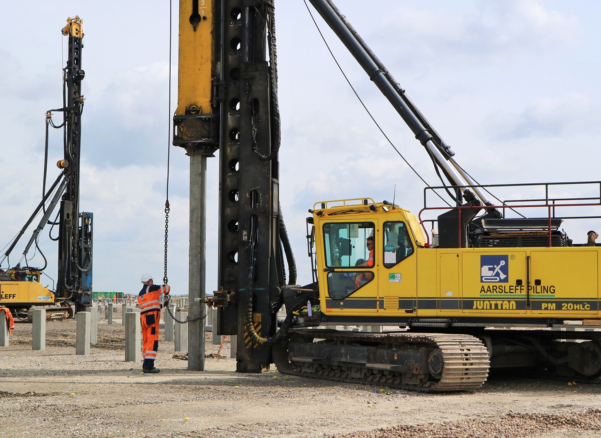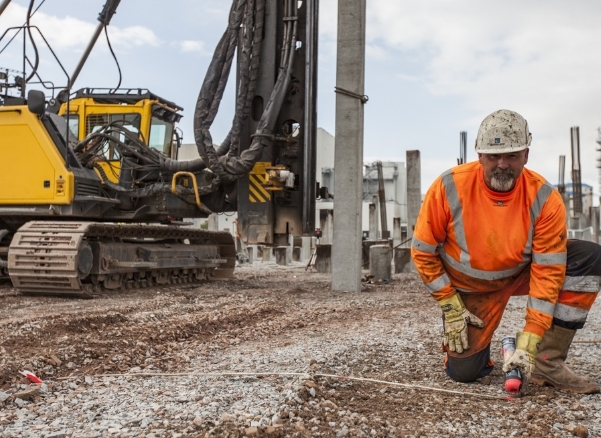Value Engineering: Creating Value for Projects and the Planet
How smart design can aid in meeting environmental goals
As we work towards the UN’s 17 Sustainable Development Goals within the wider construction industry, ground engineering has a significant role to play in reducing our impact on the environment. Aarsleff has dedicated a great deal of focus on innovation, new products and processes that we need to reduce emissions and mitigate our impact on biodiversity, but value engineering is one of the most impactful measures that we can employ; something Aarsleff has focused on since its inception.
What is value engineering?
Value engineering is the systematic approach taken to optimise a solution. This involves examining all stages of the proposed project to maximise its buildability, quality and performance whilst minimising costs, materials and timeframes. The outcome of successful value engineering is producing the most efficient and economical solution possible with the added benefit to the environment resulting from a significant reduction in embedded emissions from material and plant.
At Aarsleff, our dedicated team of design engineers are experts in value engineering. Every scheme is examined for potential savings. We have a successful track record of value engineering some of the largest schemes in the UK to both create value for our clients and reduce the project’s overall impact on the environment along the way.
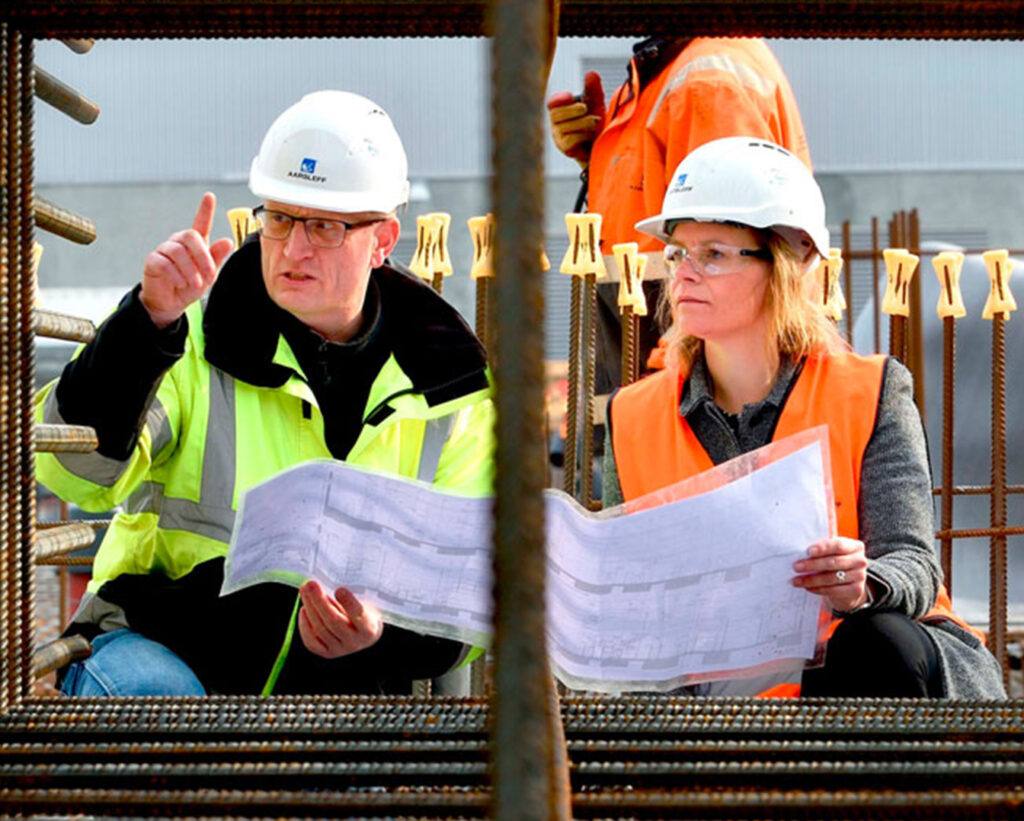
How does value engineering impact sustainability?
Value engineering is a key process for the ground engineering sector, as it has impacts across the project’s lifecycle. By focusing in on the finer details of the project value engineering allows for improved project performance, increased material efficiency, reduction in waste and energy consumption, and clearly supports our dedication to social responsibility.
1.Improved Project Performance
A key benefit of our value-engineering is how attention to detail can identify and rectify potential design flaws before they become a problem. At Aarsleff, our design engineers focus in on buildability of solutions, working with existing designs to implement over 30 years of ground engineering expertise. This improves project performance by ensuring that the solution we deliver is as simple as possible to build whilst ensuring the end product still meets high standards and quality required by our clients.
2. Increased material efficiency
By scrutinising the project design and construction processes, value engineering aims to identify opportunities for optimising the use of materials without compromising structural integrity or performance. By seeking cost-effective solutions, value engineering can lead to reduced material wastage, improved resource allocation and lower project costs; all of which contribute to enhanced efficiency. The integration of sustainable practices within value engineering can further bolster material efficiency by using environmentally friendly materials and recycling options, thereby reducing the project’s environmental footprint whilst also conserving valuable resources.
3. Reduction in waste and energy consumption
Through a systematic examination of project designs and construction methods, value engineering identifies opportunities to streamline processes and optimise resource usage. By carefully assessing materials, construction techniques, and equipment, value engineering aims to minimize waste production and ensure that energy is utilised efficiently. This not only reduces environmental impact but also leads to significant cost savings. For instance, the selection of energy-efficient equipment and the adoption of sustainable construction practices can lower the overall energy consumption, while the reduction of unnecessary materials and better waste management practices help to minimise environmental waste.
4. Social Responsibility
Sustainable practices, driven by value engineering, contribute to the overall well-being of society. Reduced environmental impact, better air quality, and long-lasting infrastructure benefit communities and promote social responsibility. During construction, efficiencies identified by value-engineering can reduce noise pollution and vibration, as well as shorten programmes, reducing impact on local traffic routes and existing infrastructure.
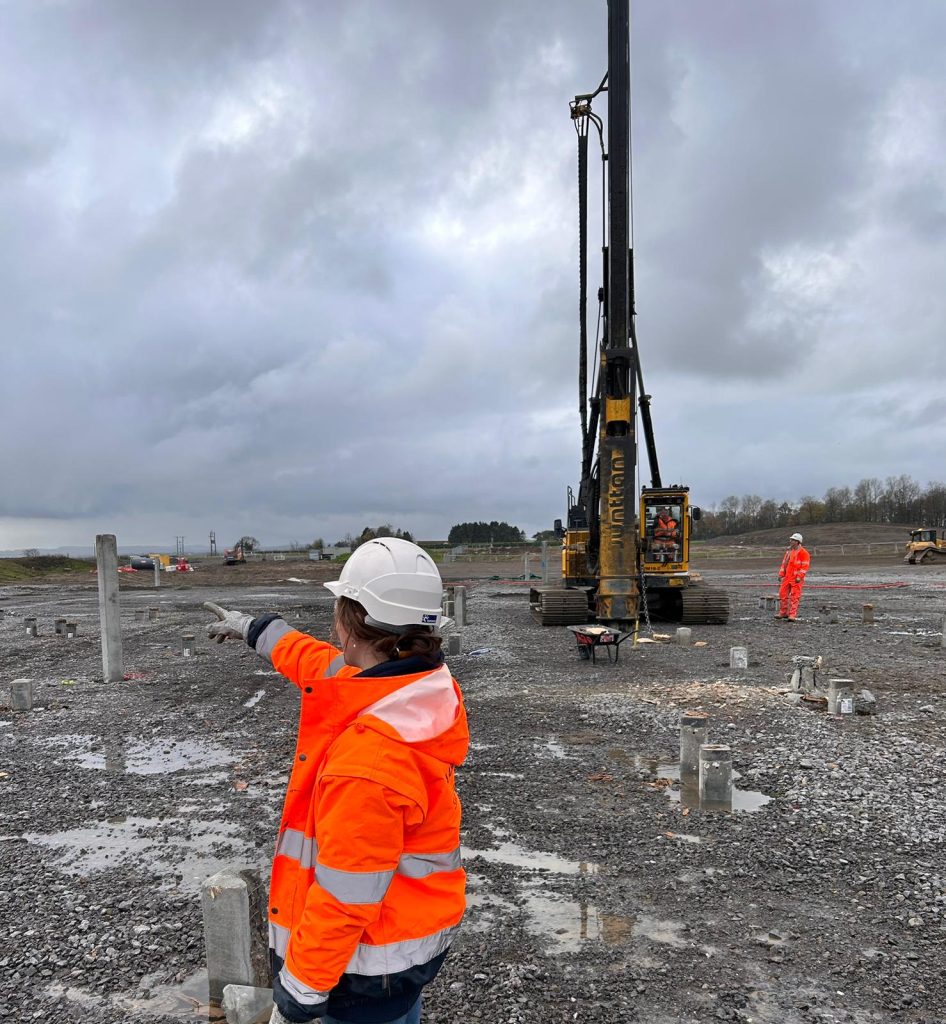
A Worked Example
Recently, Aarsleff successfully completed a project in High Wycombe, Buckinghamshire. Our client required us to design and install a sheet piled retaining wall where the existing levels would be altered by earthworks cut and fill to create a development platform for commercial units. The majority of the wall was constructed by bottom-up methods where levels were to be raised. However, a short section in the north-eastern portion of the site was constructed by top-down methods as ground levels in front of the wall were to be reduced by earthworks.
The initial tender was based on 300T of sheet piles.
Following award, the project was considered in depth by our dedicated design engineers. The proposed geometry and levels involved were complex, more so due to earthworks including sloping ground and berms both in front and behind the wall. Our team analysed over 15 different bespoke design cases to optimise the design and reduce material usage with the complex changing geometry.
The real value came in the arrangement of the sheet pile sections themselves in the final design. With a wall length of over 300m and a retained height up to 5m, optimisation of materials resulted in large savings in steel tonnage and the associated monetary and emissions cost. The value engineered scheme minimised redundancy in the materials and offered a steel saving of 57 tonnes. This saved over £100k in material costs as well as 157 tonnes of CO2e.
Tender Design |
Value Engineered Solution |
|
Material (tonnes) |
300 |
243 |
tCO2e* |
828 |
671 |
*calculated using the EFFC carbon factor for steel sheet piles
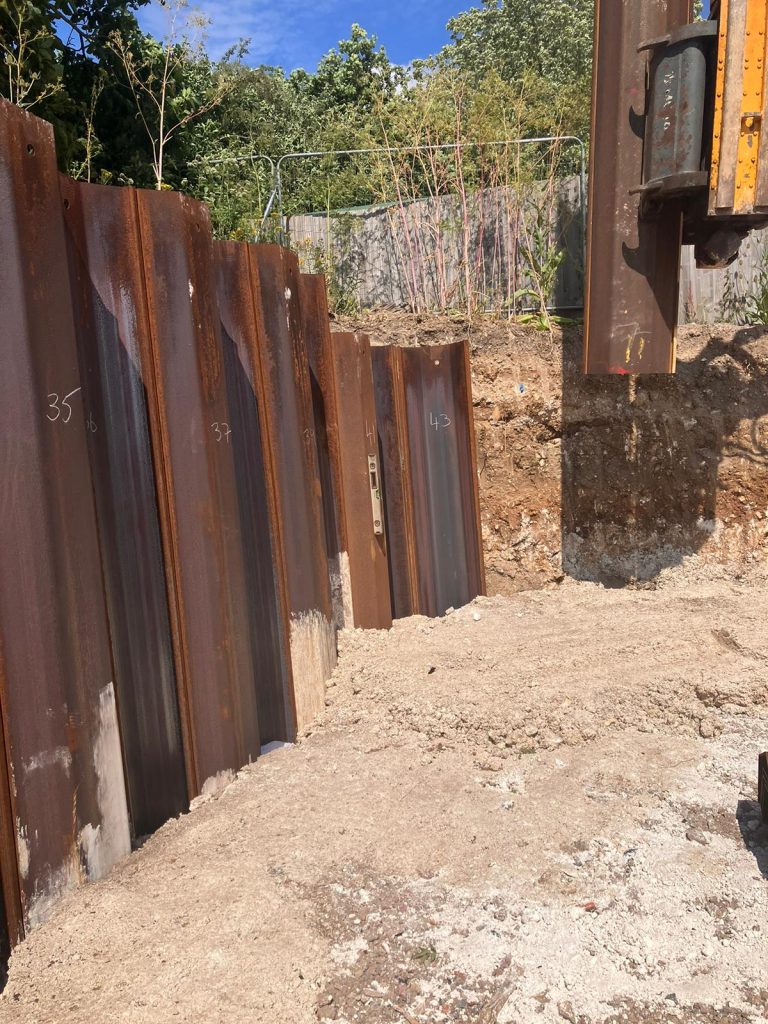
Conclusion
In the ever-evolving field of ground engineering, value engineering is a crucial process to enhance the sustainability of construction projects, particularly in piling and foundation systems. The ability to optimise costs, reduce environmental impact and improve project performance means that value engineering is a must for any engineering company looking to thrive in a more sustainable future.
The Latest. News, podcasts & projects


